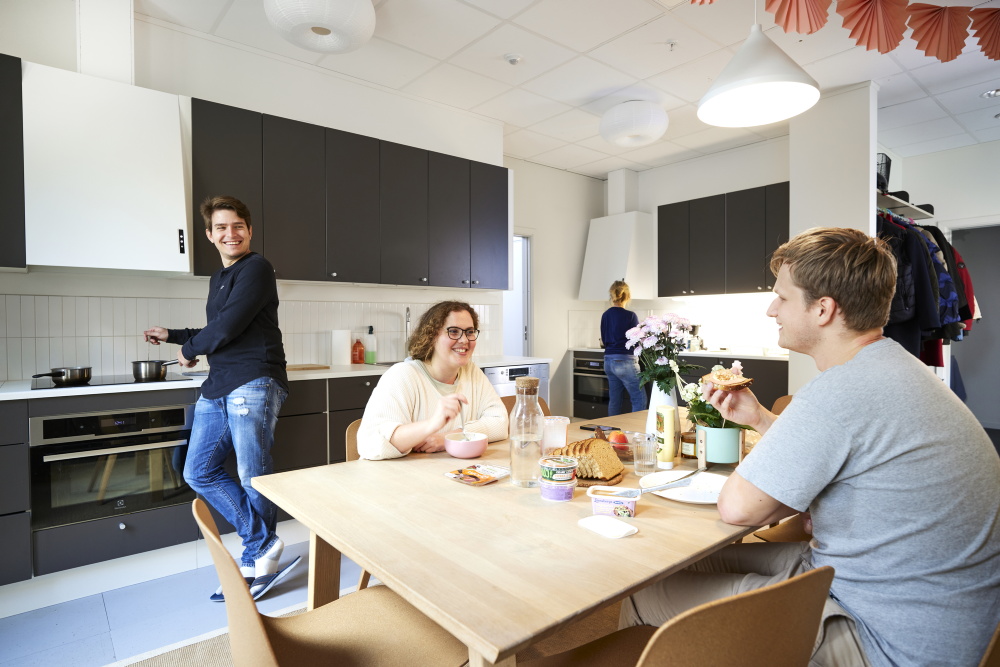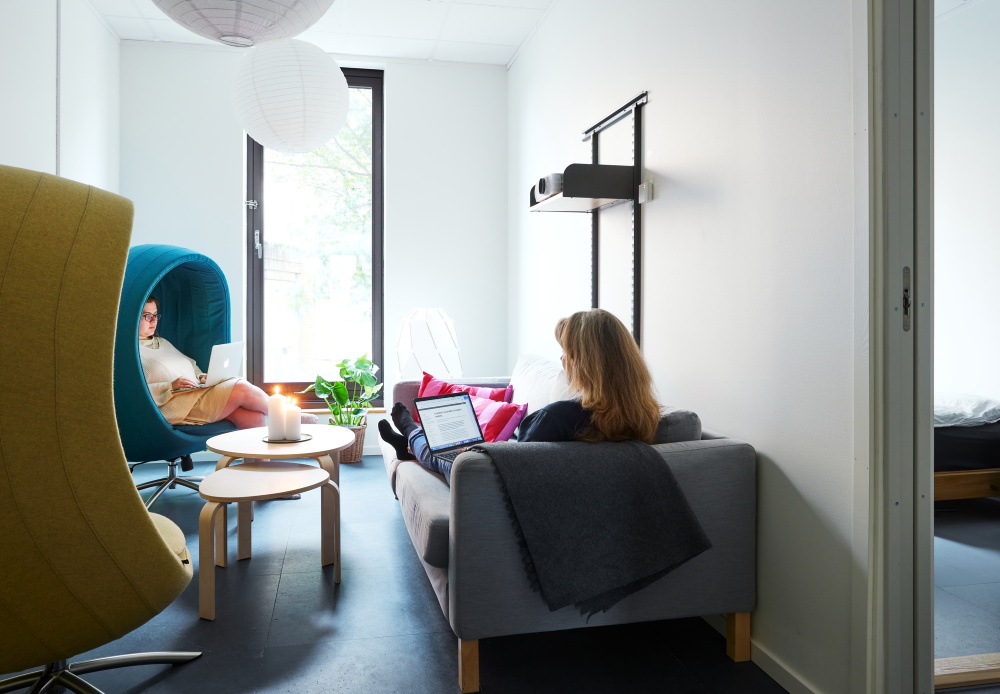CoKitchen
The sustainable student housing for the future. Most students today live in one-room flats with their own bathroom and kitchen. At the same time is loneliness a big problem among young people and these flats are expensive and uses unnecessary amount of resources and energy. What if we could create a new norm of co-living for students, with large social kitchen, and shared spaces that support a sustainable lifestyle?
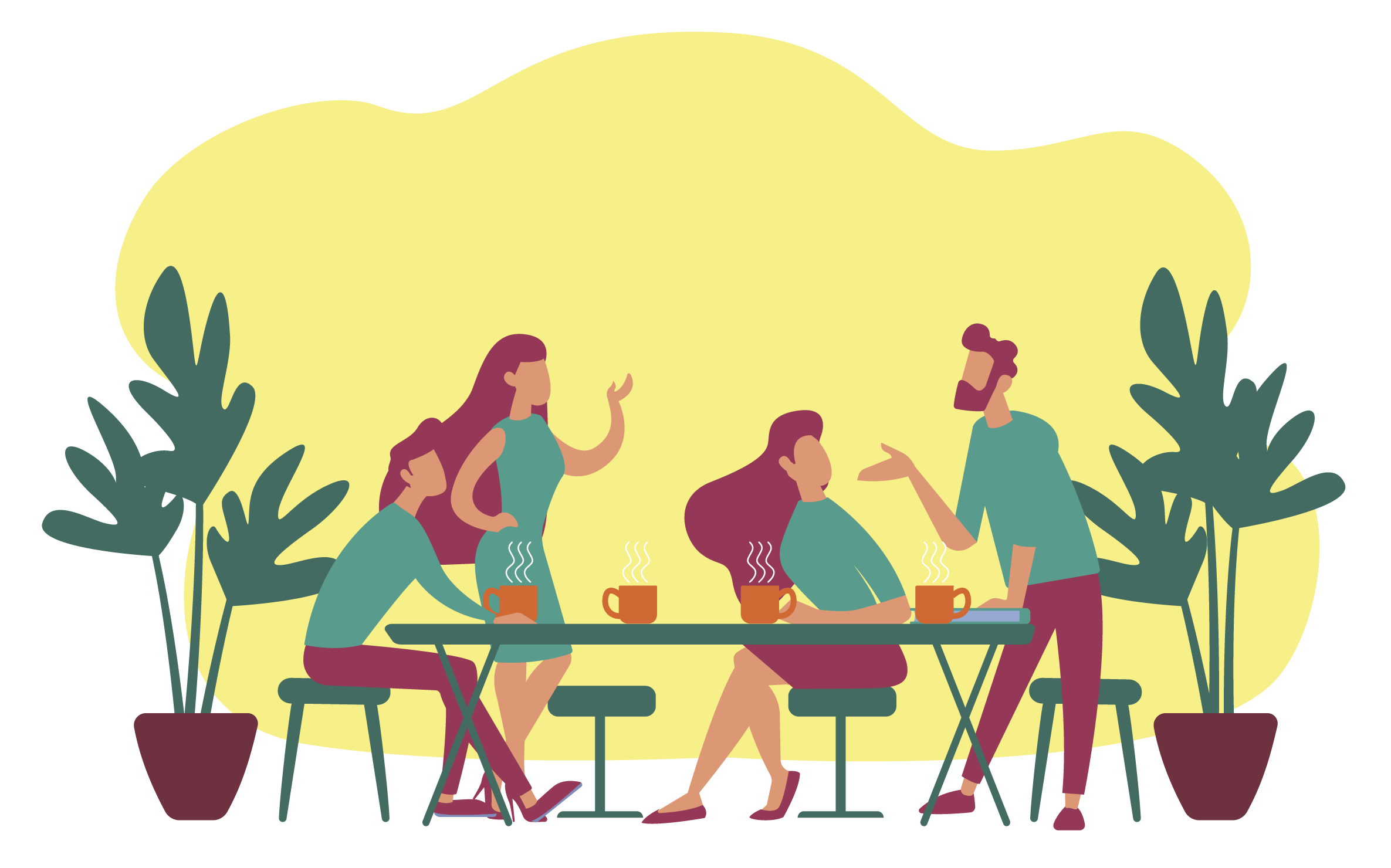
Loneliness is a big problem among young people and these flats are expensive and uses unnecessary amount of resources and energy. What if we could create a new norm of co-living for students, with large social kitchen, and shared spaces that support a sustainable lifestyle?
The purpose of this project is to create a sustainable and flexible co-living of the future. The goal is to develop a new knowledge base and standard for co-living that creates value socially, offers learning and is resource and energy efficient. Students are generally a group prone to change as they move to a new place and embark on a new phase in life. They have a more flexible lifestyle and are more open to environmental issues and to new ways of living. Here is a unique opportunity to establish sustainable habits and trying out new technical and social solutions.
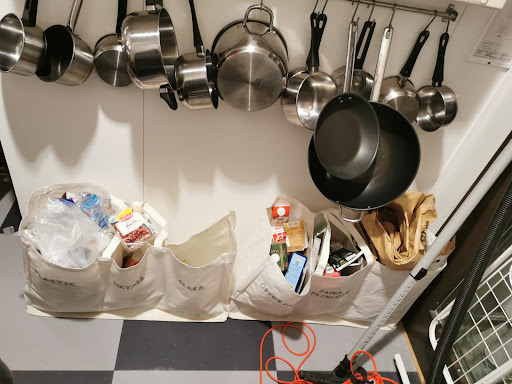
The project's focus is communal kitchens and shared bathrooms in student housing on campus. The kitchen is a central place for energy and resource management in the home, a place for community but also for frictions. Here we need new thinking and new solutions that considers several users in the kitchen using the latest technology. Our goal is to create explorative and creative solutions in terms of energy and resource efficiency, socializing, learning, cooking and hygiene, as well as developing knowledge to influence building regulations.
The project brings together partners from the building, real estate, architecture, service design and appliances together with researchers from KTH, to research, develop and test new housing solutions, products and services. Academic House will build 7000 new student housing and will be able to directly utilize the knowledge in their work.
Interdisciplinary methods
To solve major complex challenges such as this one, an interdisciplinary work methodology is needed. Therefore, this project, in collaboration with companies from different industries, brings together many different skills and research fields. The overall methodology is taken from service design and user-centered design, which has long proven to be effective in creating innovations that are positive for users as well as technically economically feasible.
Service design
We will start with service design as a methodology and apply it to architecture and housing, with the goal of also contributing to method development in service architecture. We see everyday life as practices that are created through a complex interplay of materialities, knowledge and societal norms. To succeed with a change initiative, all these parts need to be involved and new practices established, which can then be spread and scaled up to the rest of society.
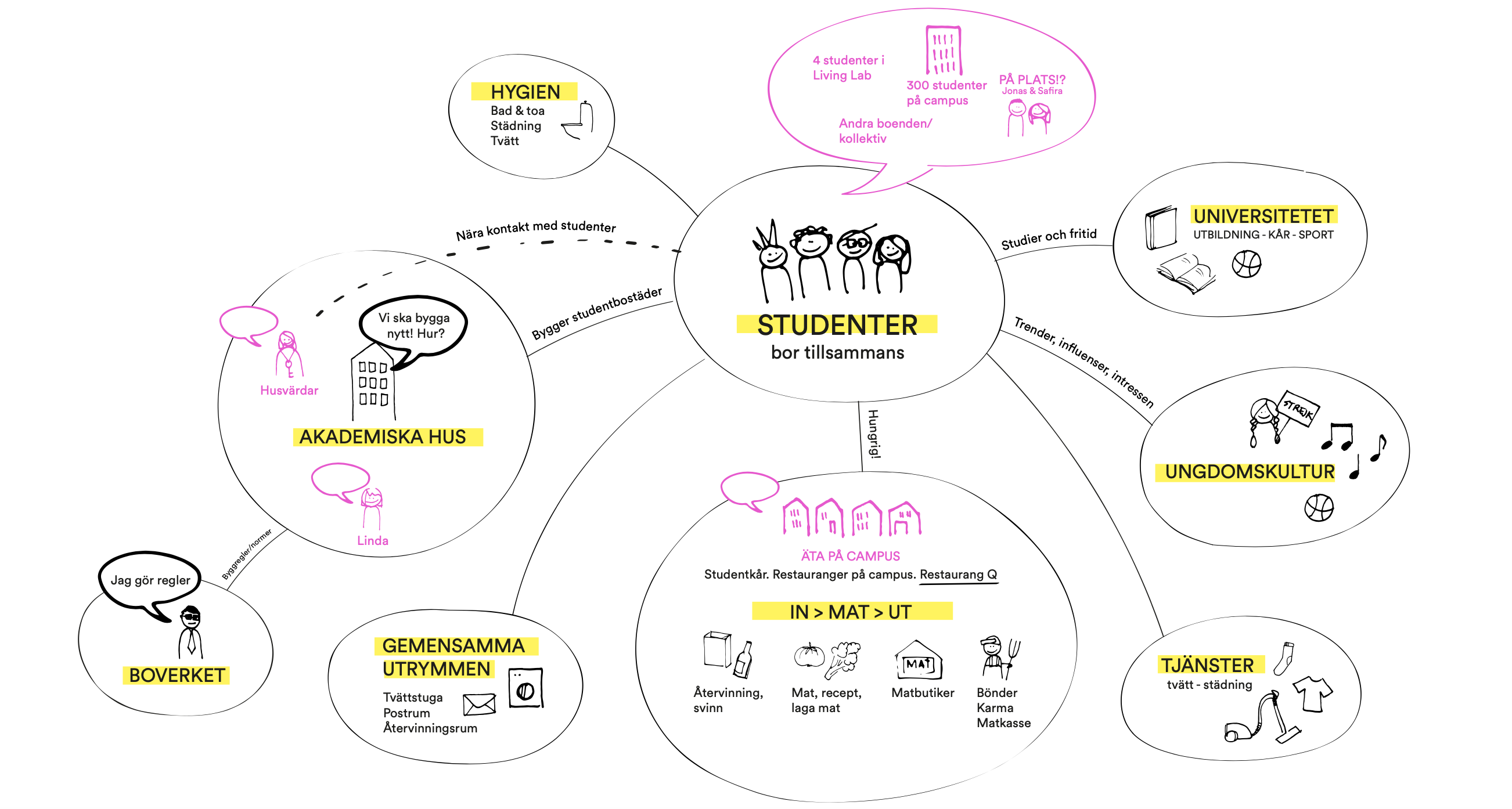
Testbed
The project is run in collaboration with Live-in Lab, a platform with multiple test beds for testing and research of new technology and new methods, with the goal of increasing collaboration between academia and business. The Live-in Lab is reduild twice to different co-living flats, where 5 students live for one year. KTH Live-in Lab, together with 300 single student flats will form the basis of our interviews, observations, and co-created workshops. By testing the concepts sharply in real homes for a longer period (4-10 months), we can get results faster, but also provoke reactions, thoughts, and behaviors in the residents.
The different housing solutions and prototypes will be measured by several sensors in the apartments. In this way, we can obtain accurate data regarding the consumption of, for example, water, heat, and electricity.
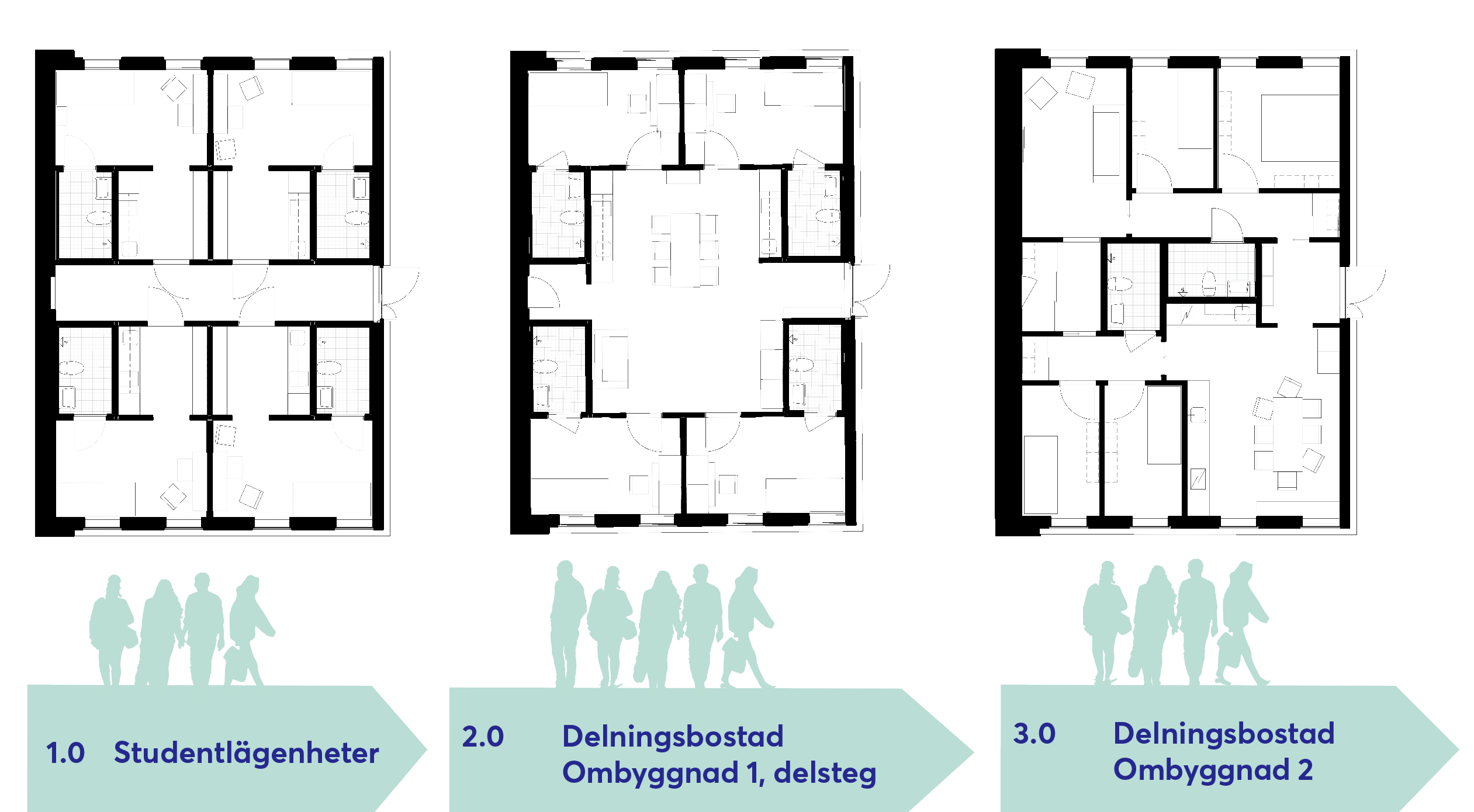
Life Cycle Analyses
KTH Seed (Department of Sustainable Development, Environmental Science and Engineering) will make calculations of resource efficiency and climate impact of various prototypes and design strategies in the project. This will be done based on life-cycle analysis methodology, mainly based on the European standard EN15978.
Workshops and interventions
Based on interviews, workshops and research we define painpoints for co-living experience and drivers for sustainability transformations. The insights are the base for design of interventions of different kinds that we create and test with the students. These interventions could in the next phase be scaled up to fullscale prorotypes or even implemented in the organisational structure.
From the viewpoint of behavioral science, our starting point is based on social practice theory; we believe that technology, habits, and social norms together create practices and lifestyles. To change our lifestyle, we need to look at the various elements, such as technical infrastructure, stories and habits, as a whole. (Shaw, Spaargaren).
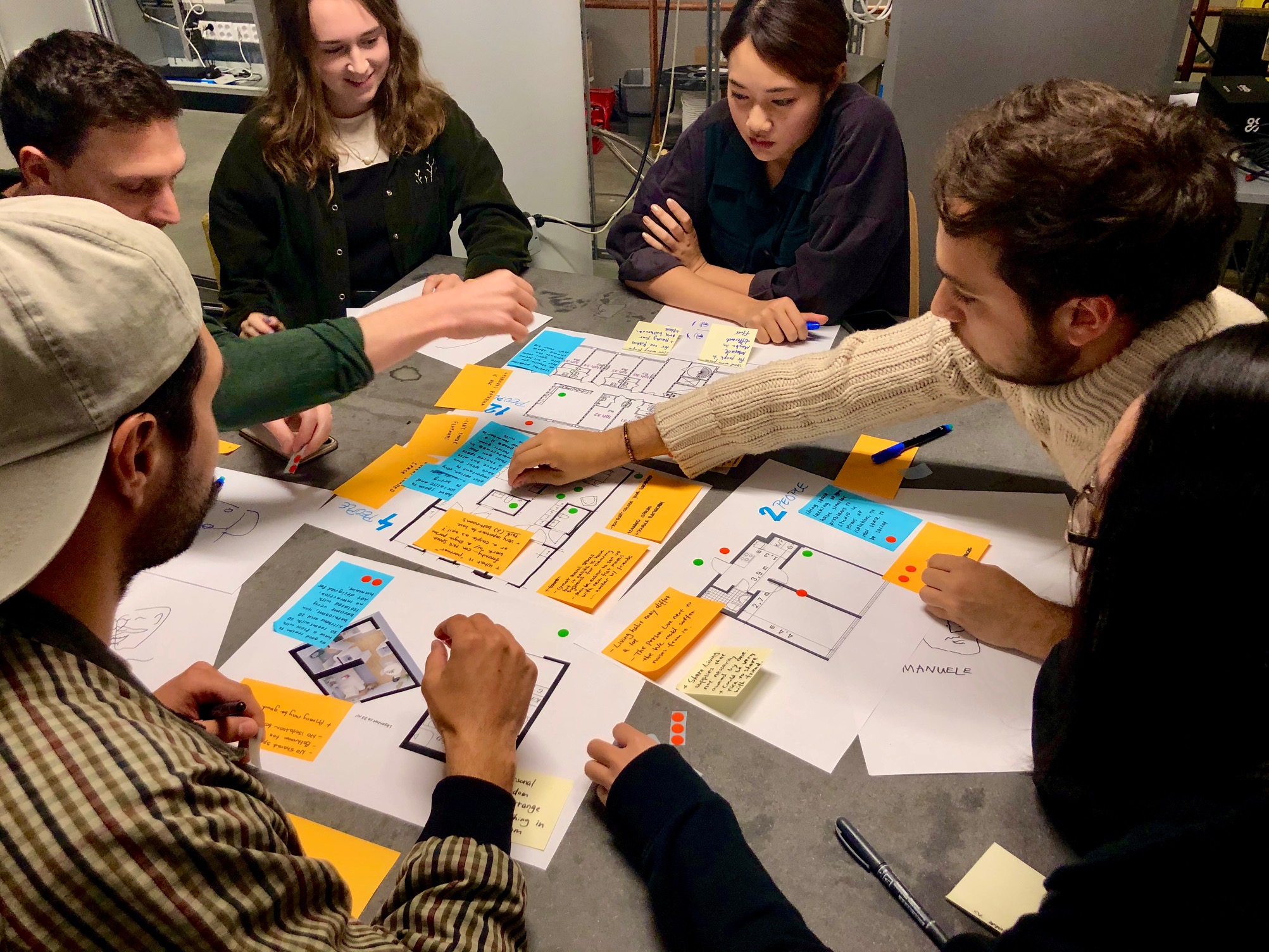
Two different floorplans were tested for one year each
The first rebuild of KTH Live-in-lab was a smaller intervention were we merged four small kitchen and a corridor to a big common kitchen and livingroom. Each bedroom was quitse big and a had a sepratare bathroom. Here five students lived for one year.
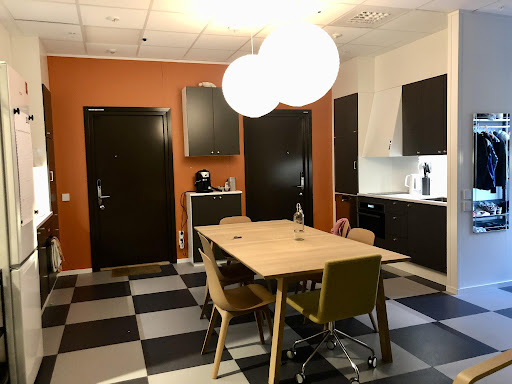
The second rebuild was a complete change of the floorplan, based on design by the architects Theory into practice. This design was based on interviews, workshops and research in the project during the 18 months previous. In august 2021, four students moved in. During the following year, the project will study the students life and activities using both quantititive and qualitative methods.
